By Sean Frederick Forbes, Ph.D. Director, Creative Writing Program UConn English Department
I’ve been writing narrative poetry and creative nonfiction for over twenty years, and when I am teaching undergraduate introductory level creative writing courses, my students often ask me a variation of two questions: “what inspires you to write?” and “what topics do you write about?” I respond by telling them that the familial and personal narratives my maternal grandmother told me as a child spurred a deep curiosity within me about how to tell a story, even if it may seem mundane to me. While I do prefer to write about my family’s ancestral lore acting in conversation with my grandmother’s stories, sometimes “big ideas come from out of the blue,” as is the theme of this year’s ECE magazine, in which I have found myself writing a poem about visiting the Dachau Concentration Camp Memorial Site in Bavaria, Germany in December 2015, or writing an ekphrastic poem (from the Greek, is a poem that describes a work of visual art, such as a painting, sculpture, or other form of visual art), about a painting titled “Misty Morning” by the Connecticut-based artist D. Stone. Memories, images, facts, emotions, questions, longings, yearnings, etc. are what people experience on a daily basis, a major and vital part of the human condition, and expressing oneself in the written word has the ability to be transformative and meaningful to the listener/reader, as well as the writer.
This year the ECE Wallace Stevens Poetry Contest received forty-five poetry packets. My fellow judges, Kyle Barron and Anh Le—both are PhD candidates in the English department at UConn and are creative writers—and I selected five poetry packets by Hannah Guo, Sapphira Costa, Yimin Wu, Hermione Ildefonso, and Naima Garcia as the first, second, third, and two Honorable Mention winners, respectively. On a Thursday morning in mid-March, Kyle, Anh, and I held a Zoom meeting to discuss and select the winners, and after an hour of deliberating, the three of us were impressed by the subjects and topics expressed in all of the submissions. There were five poets whose writing mesmerized us greatly for the levels of craft, creativity, imagery, depth of language, and range of topics and poetic forms and styles.
In the first two lines of the poem “Listening” by Hannah Guo, the reader is advised to “Stop in your tracks—let the autumn wind / gently caress your face and lift your chin skyward,” a gesture that allows one to experience a season and all that it offers. The speaker employs the use of the directive by addressing the reader as “you,” and while this tone may seem demanding, if not commanding to some readers, often times one needs to be reminded about the benefits of embracing an autumnal atmosphere of “distant bonfires, fallen leaves, rain-soaked bark— / a hint of cold earth, and the ghost of sunburnt grass.”
The speaker in Sapphira Costa’s poem “Bisavó,” the Portuguese word for grandmother, employs the literary technique of the braided narrative to highlight how three generations of women in her family approach personal silences. The speaker’s great-grandmother was regulated to domestic duties and took on hidden silences about her pains and worries, “her hands learned to hide her heart / to place away her strengths and burdens,” and the speaker’s grandmother took on the same domestic roles and responsibilities and inherited even deeper silences about her concerns and sorrows, “the quiet steadiness of hands that knew work.” The speaker is a young poet, writing about these silences in open forum, and at the end of the poem ponders if hiding these silences is a kin to drowning, in an emotional and psychological sense, as “if the flood isn’t the water rising, / but the weight of everything that is left unsaid.”
In Yimin Wu’s poem “Anticipating Ardor,” the speaker employs tercets, stanzas of three lines, to create a typographical juggling act of imagery and sound enacted on the page. The scene depicts a speaker sitting on a cold park bench deeply engaged with the architectural landscape of the park juxtaposed with the wild, creature-laden lushness of the forest nearby, and the mysterious wonders of the universe that surrounds, with each stanza offers a range of sonic and visual stimuli: “cicadas still chirping, my eyes snap open. / The trail of a shooting star glimmers above, / Almost akin to a strand of blond hair.”
Hermione Ildefonso’s poem “Gemini Syndrome” recounts the moment a speaker confronts, and transforms into, the dual persona of the Gemini zodiac sign via their reflection in a foggy mirror. The speaker asks, “what is a twin soul in a singular body?,” which is signaled by an inner desire and longing to comprehend their mercurial nature and patterns of behavior. The speaker understands that they’re changing as the world changes, and there is deep complexity, but also splendid wonder in who they are: “So, here I am, at the edge of knowing / with trembling hands, I scatter petals of possibility.”
The speaker in Naima Garcia’s poem “The Dead End at Daybreak” offers the reader a narrative about the Second Battle of Ypres that was fought between April 22 and May 25, 1915 during the First World War. This battle was a means to gain control of land to the east and the south of the Flemish town of Ypres in western Belgium. The use of the historical perspective and the speaker’s tone of voice provides the reader with a closer lens into this moment of war, in which the speaker states that “…Ypres / would never be the same glistening, tourist attraction it had been / before;” a startling image of the future juxtaposed with the “fruity scent of the lavenders.”
Hannah Guo
Hannah Guo is a senior in high school from Woodbridge, CT. She plans to attend Rice University in the fall and is passionate about the interactions of writing, community, and civic engagement. Watching words move, inspire, and unite people fills me with purpose. Since the very beginning, we have all been feelers. We have been storytellers. Leaning into that gives me strength.
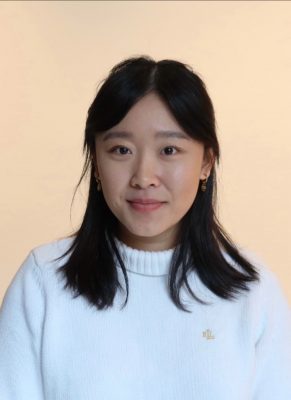
Listening
Stop in your tracks—let the autumn wind
gently caress your face and lift your chin skyward
It wraps around your feet and whispers,
I can take it from here,
so you listen, and let it.
The wind smells like distant bonfires, fallen leaves, rain-soaked bark—
a hint of cold earth, and the ghost of sunburnt grass—
You smell like the wind.
Tell me, have you called the wrong people home?
Have you left your heart on regret’s shelf ?
Have you cradled your fear
when you should have been grasping at joy?
Have you forgiven yourself?
Speeding up, you feel your heart thumping,
Two feet trying to leave the ground,
The wind is trying, trying! trying!
Hair unfurling, winding into yours the way yarn binds itself to a spool
Only to stop at a foundation of solid wood,
chest rising, breathing precious life in—
The egrets keep soaring, their wings fanned out, spelling goodbye
Breathing hard you ask
the grand Oak
if he loves all his old selves
He says not necessarily—but they have made me so
I hold them every day and tell them they have done
a good job
And the Willow and Birch trees chime in, rustling,
You can also live a hundred lives
You can keep each one
And you realize they are right; you have—
And you will.
Sapphira Costa
Sapphira Costa, a senior at Manchester High School, has been writing stories for as long as she can remember, finding a second home between dusty library shelves and thrifted notebooks filled with poems about longing, girlhood and becoming. She dreams of studying neuroscience to better understand the mind, but it is through poetry that she has always understood the soul. Her work has been recognized with two Gold Keys, two Silver Keys and an honorable mention from the 2022 and 2024 Scholastic Arts & Writing contest.

Bisavó
Born from the shadow of terracotta roofs,
where my great-grandmother once danced beneath the orange
blossoms,
growing among the vineyards and olive groves.
Her bare feet kissed the earth, dusting it with centuries of soil.
Her hands heavy with the weight of the harvest,
the patterns of the season etched into her skin.
She learned early to bear the weight of others as her own.
In Portugal, a women’s role was carved into the land,
she was the earth.
Her roots ran deep into the soil,
unshaken by the weight of family, traditions and expectations of
silence.
Her hands prepared meals, washed clothes, and raised children.
They sewed respect into every seam, served faith onto ever
plate,
all while a man who claimed her loyalty,
lingered in the arms of others.
Her hands learned to hide her heart,
to place away her strength and burdens.
The Church whispered to her,
reminded her that god watched the patient,
as if her silence was the way to sainthood.
Her faith instructed her that to speak of pain was a sin.
That her worth lied in her sacrifice,
in her ability to carry the burdens without complaint.
My great-grandmother inherited these beliefs like heirlooms,
tucked into the folds of a life lived passed down between kitchen
walls
and church pews, stitched between the pages of prayer books.
She never spoke of sorrow,
because sorrow was the quiet hum
of wind through azulejo courtyards,
where the walls held everything she couldn’t say.
She hemmed her sorrow into the edges of tablecloth and
dresses too long,
whispered them into the bread and malassada she baked,
but she never let them surface.
Emotions were a luxury,
an indulgence she could not afford.
They belonged to fado songs that carried her pain,
its melancholy seeping into the edges of every conversation
she never had.
In America, there is no room for this kind of quiet.
Here, feelings must be displayed like the fruits
at a Saturday market, ripe and open to touch.
But my grandmother,
she inherited her silence,
like the faded yellow on the Barcelos Rooster of her grand-
mother’s apron,
the quiet steadiness of hands that knew work
and “sim senhor”
but not words.
In the kitchen, caldo verde simmers,
the steam rising like the breath of something long held back
and I feel the weight of generations in every spoonful.
There is no fado here, only the chatter of this new land
that asks for too much and understands too little.
How can I explain the way my grandmother loves
in a language with no space for silence?
My great-grandmother never questioned her role.
Her days were spent in service
to family, to faith,
to the land that gave little but asked for much.
And my grandmother too, learned to swallow her voice,
to wear her silence as armour.
to carry the weight of expectation,
with silence, with grace.
But I live in a country that demands my voice,
where I am expected to be open,
to name my hurts, to name my struggles,
but my mouth is filled with saudade—
the longing for what is lost
before I ever knew it.
My great-grandmother taught my grandmother that silence
was safety,
and that to say too much
was to invite the world in too closely,
to let the sea flood the village.
But in this American land,
I wonder if silence is its own kind of drowning,
if the flood isn’t the water rising,
but the weight of everything that is left unsaid
Yimin Wu
Yimin Wu is a senior attending Hall High School in West Hartford, where she’s the president of her school’s Creative Writing Club. Beyond the pen, she also loves learning foreign languages and likes to game in her free time. I’ve loved writing since elementary school, and for me, it’s a valuable way to express my authenticity and Asian-American experience. I enjoy going to local open-mic nights and share poetry together with friends.
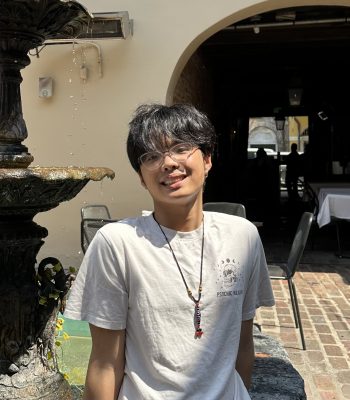
Anticipating Ardor
Streetlights flickering, fireflies flashing,
I solemnly sit on the cold park bench,
Awaiting the right person to arrive.
From the corner of my eyes, a gleaming
Ray dashes through the frosty wind,
Flinging my body into a daze.
As we exchange a brief glance,
A blunt hammer clashes against
The anvil inside my iron lungs.
Stripping away my frigid facade,
That beaming smile melts off my steel
Skin and captures my heart of gold.
His teal eyes sparkle under the moon,
Irradiating my dilated, dark pupils.
I reach towards his curly, golden locks,
But the streak of light escapes my grasp,
Minimizing and disappearing into the stars,
Casting a silver shadow on my palm.
The shadow, emitting a tingling warmth,
Lingers in my hand, refusing to dissipate.
Clutching it to my chest, I plunge into slumber.
Cicadas still chirping, my eyes snap open.
The trail of a shooting star glimmers above,
Almost akin to a strand of blond hair.
Upon a yellow birch, a tiger owl blinks at me
In mockery. As I depart deep into the woods,
A creeping phantom of regret stalks me.
Sun emerging from the blurry horizon,
Sparrows ruffle their russet wings.
Past the bench, runs a familiar figure.
Making a double-take, he decides
To stop and sit down this time, eagerly
Awaiting the right person to arrive.
Hermione Ildefonso
Hermione Ildefonso is 17 years old and in her junior year at New Britain High School. She would describe herself as a lover of all things art and writing, and her poetry is a testament to that connection.

Poetry allows me to explore complex emotions and ideas in a creative and meaningful way. It’s how I translate the world around me onto the page.
Gemini Syndrome
In the mirror’s dim reflection,
two faces peep through the fog,
like shadows of thoughts
caught in a tornado of yearnings,
who am I when the world isn’t watching?
A whirlwind manakin,
twisting to the rhythm of others’ expectations,
each pulse, every heartbeat adds a tiny fragment
to this mosaic of selves.
On Monday, I am the rainmaker,
dancing barefoot in puddles of spontaneity,
lighting up the skies with laughter,
but by Tuesday,
the clouds gather,
and I dissolve into the calm before the storm,
a solitary figure,
huddling in the corners of my own mind.
What is a twin soul in a singular body?
One half conspirator, the other—
a reluctant participant in the play of life,
holding backstage secrets while the spotlight aches
for that dazzling performance.
But here I stand, the original and a ghost,
A dichotomy bound and unbound,
the dance of duality.
Words swirl, a cyclone of confusion;
“Be authentic,” they say,
Yet every revelation feels like a mask unmasked,
and the deeper I dig,
the deeper the chasm grows,
identity slipping like sand
between my fingers,
the essence of self caught in a paradox.
In a crowded room,
my voice shatters into tiny echoes,
each thread of laughter,
each sigh feels borrowed,
as I weave an intricate tapestry of personas—
the philosopher, the joker, the lover,
the strategist who charts the unseen pathways,
and still I linger,
a traveler in my own existence.
I ponder,
is it evolution or confusion?
Am I the artist painting my own reality
or a canvas upon which
the world scrawls its impressions?
In this Gemini syndrome,
I yearn to scream,
to break free from the expectations,
to dive into the abyss
and learn to swim
in the depths of who I might become.
So here I am, at the edge of knowing,
with trembling hands, I scatter petals of possibility,
letting go of what I thought I should be,
embracing the dance of fluctuations,
not seeking resolution,
but celebrating the beauty
of being beautifully,
confoundingly me.
Naima Garcia
Naima Garcia is 18 years old and from Naugatuck, Connecticut. I connect to poetry due to my admiration for its potentially eloquent, song-like structure that provides a space for personal introspection and vivid imagery.

The Dead End at Daybreak
I remember it crystal clear, we all do. It was destined that we would never forget, the everlasting trauma would make our skin crawl, they made sure of that.
The swiftness of the flying poison, the gory casualties that followed, my bloody terror, our anxiety-induced hearts nearly slipping out of our chests, the burden of death and gas misting the atmosphere.
I’ll never forget the visions of the piles of rotting, lifeless corpses increasing by every second, the velvet-splattered outdoor ground, the thousands of Canadians who’s souls had been ripped out at the hands of chlorine gas, the eruption of stinging slipping through my lungs. I tear up and vomit at any topic relative in the slightest to such a memory








 #2 Ellington High School – Silver Bullet
#2 Ellington High School – Silver Bullet






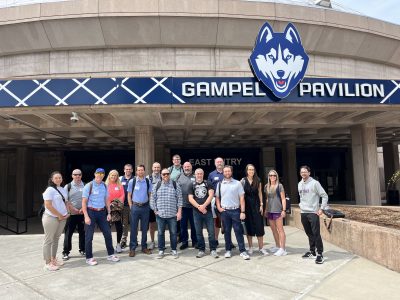
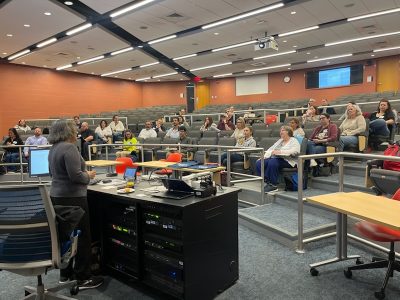 t. Instructors were given the opportunity to meet with Eric Schneider, Associate Director of Athletics and Compliance at UConn, to discuss the ever-evolving landscape of college athletics, including NIL (name, image, and likeness) policies. The afternoon was topped off by a walking tour of several of UConn’s athletic facilities, including Gampel Pavilion, the flagship site of the “Basketball Capitol of the World”, along with the baseball, softball, volleyball, and ice hockey facilities.
t. Instructors were given the opportunity to meet with Eric Schneider, Associate Director of Athletics and Compliance at UConn, to discuss the ever-evolving landscape of college athletics, including NIL (name, image, and likeness) policies. The afternoon was topped off by a walking tour of several of UConn’s athletic facilities, including Gampel Pavilion, the flagship site of the “Basketball Capitol of the World”, along with the baseball, softball, volleyball, and ice hockey facilities.




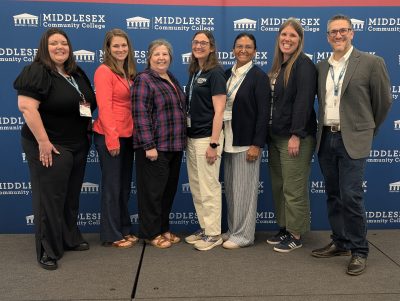 underrepresented students, and stronger academic and non-academic supports. Dr. Amanda Sterk opened the event with a compelling keynote on empowering students and families to navigate dual enrollment successfully. Among the 14 breakout sessions, UConn ECE’s Chris Todd presented on using concurrent enrollment partnerships as a strategy to attract, recruit, and retain educators,while UConn ECE Instructor Amy Bigelow (Franklin Academy) shared insights on supporting students with learning disabilities in dual enrollment math courses. Amy reflected on her experience, saying, “My first NEACEP conference highlighted the wide variety of ways high school students earn college credit nationwide. It deepened my appreciation for UConn’s dual enrollment model, offering college courses in a familiar, small-class setting. I was also honored to present about Franklin Academy’s success in providing executive functioning coaching and accommodations for neurodiverse students taking ECE courses.” UConn’s Office of Early College Programs was well represented by Chris Todd, Carissa Rutkauskas, and Jess Dunn from UConn ECE, along with Dr. Bobbi-Jo Wathen and Yamileth Lopez-Ramos from UConn Pre-College Summer. UConn ECE instructors Catalina Peñafiel Rincón (Kennedy High School) and Dawn Marie Conroy (Waterbury Arts Magnet School) also attended, with Dawn Marie recently certified to teach ECE courses. Catalina noted, “Thank you, NEACEP, for a well-organized and informative conference. I particularly appreciated the engaging sessions, insightful speakers, and the opportunity to network with other professionals.” The conference proved to be a dynamic and collaborative event, reinforcing the value of partnerships in shaping the future of dual credit education.
underrepresented students, and stronger academic and non-academic supports. Dr. Amanda Sterk opened the event with a compelling keynote on empowering students and families to navigate dual enrollment successfully. Among the 14 breakout sessions, UConn ECE’s Chris Todd presented on using concurrent enrollment partnerships as a strategy to attract, recruit, and retain educators,while UConn ECE Instructor Amy Bigelow (Franklin Academy) shared insights on supporting students with learning disabilities in dual enrollment math courses. Amy reflected on her experience, saying, “My first NEACEP conference highlighted the wide variety of ways high school students earn college credit nationwide. It deepened my appreciation for UConn’s dual enrollment model, offering college courses in a familiar, small-class setting. I was also honored to present about Franklin Academy’s success in providing executive functioning coaching and accommodations for neurodiverse students taking ECE courses.” UConn’s Office of Early College Programs was well represented by Chris Todd, Carissa Rutkauskas, and Jess Dunn from UConn ECE, along with Dr. Bobbi-Jo Wathen and Yamileth Lopez-Ramos from UConn Pre-College Summer. UConn ECE instructors Catalina Peñafiel Rincón (Kennedy High School) and Dawn Marie Conroy (Waterbury Arts Magnet School) also attended, with Dawn Marie recently certified to teach ECE courses. Catalina noted, “Thank you, NEACEP, for a well-organized and informative conference. I particularly appreciated the engaging sessions, insightful speakers, and the opportunity to network with other professionals.” The conference proved to be a dynamic and collaborative event, reinforcing the value of partnerships in shaping the future of dual credit education.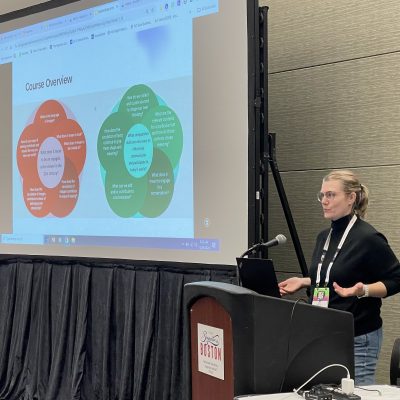 UConn ECE and had this to say about her experience:
UConn ECE and had this to say about her experience:
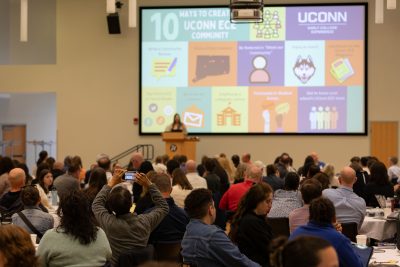 tructors chose from three focused breakout sessions:
tructors chose from three focused breakout sessions: